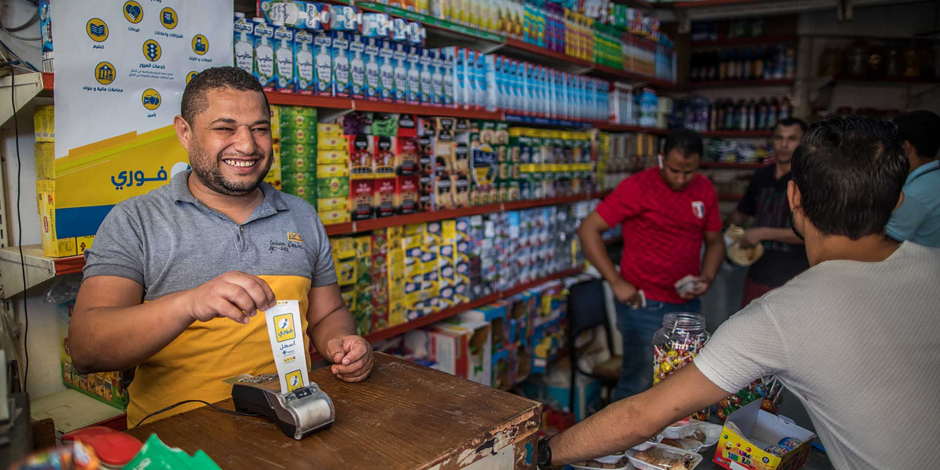As digital payments become an increasing phenomenon across the world, Pakistan can also move towards a cashless economy by replicating Egypt’s digitalization model, keeping in view many similarities between the two countries on economic fronts.
Fawad Abdul Kader said he had recently visited Egypt to learn their techniques for promoting digital transactions as within a few years it got connected with 7,50,000 merchandise within a period of few years.
“We want to connect 100,000 merchandise with digital payment solutions in a short to medium-term goal, against the existing 900 connected through our system,” he said.
According to recent reports, Pakistan has made progress in financial inclusion, with the number of bank accounts increasing by 16 percent over the past year. However, digital payment acceptance in Pakistan remains low, with only 6 percent of transactions being conducted digitally. The slow adoption of digital payments is creating difficulties for businesses and hindering economic growth.
SMEs contribute up to 40 percent of Pakistan’s gross domestic product. Yet, due to the current business environment, businesses face multiple challenges, including high transaction costs, the burden of documentation, and the avoidance of taxes. Digital financial services can reduce transaction costs by up to 90 percent while improving the speed and accuracy of financial transactions.
Numerous private and publicly owned companies led to the Egyptian digitalization of payment mechanisms. One of the important ones was, Fawry, which is part of a new wave of technology companies ushering Egypt into the digital age. Many of these firms are helping transform industries like banking, health care, and transport, and in the process creating good jobs for young Egyptians, more than 30 percent of whom are unemployed.
IFC invested $6 million in Fawry in 2013 and helped guide founder Ashraf Sabry and his team as they built their business. Now the 12-year-old company handles 2.5 million transactions a day. In 2018 Fawry processed 40 billion Egyptian pounds (about $2.5 billion) in electronic payments. Earlier in 2019, Fawry became Egypt’s largest financial technology firm to list on the national stock exchange. It now employs 1,600 people.
It was the crux of discussions held with the country manager of Paymob Pakistan Fawad Abdul Kader. He threw light on different aspects of digitalizing the merchandise in Pakistan on the pattern of the Egyptian model whereby the phenomenon was increasing at a supersonic speed.
However, in Pakistan, the adoption of digital payments has been slow, despite the growing numbers of financial inclusion, particularly in digital payments acceptance.
The slow adoption of digital payments, he continued, remained a challenge due to the behavior of people who still prefer cash transactions. “This slow adoption in some cases is also attributed to a lack of awareness and willingness among small businesses and merchants to conduct all transactions in cash to avoid documentation and taxes.”
A lack of awareness and willingness among small businesses to conduct transactions digitally remains the biggest challenge faced by Paymob in the country, according to Kader.
The country manager emphasized that the government could facilitate cashless and online transactions by educating the public on the benefits of digital payments and the holding cost of cash. “Government initiatives can promote digital payments and financial inclusion in the country.”
He called for government intervention to address the issue, stressing the center must facilitate cashless and online transactions by educating the public on the benefits of digital payments and developing trust around digital payments. The growing expertise of the government in social media tools could also be leveraged to educate small and medium-sized enterprises (SMEs) and vendors on digital payments, he noted.
Kader also emphasized the importance of Soft POS solutions in revolutionizing digital payment acceptance in Pakistan. Soft POS, also known as tap-on-pay, allows merchants to accept digital payments on an NFC-enabled phone, thereby reducing the holding cost of cash.
Soft POS adoption is expected to grow rapidly worldwide, with a projected user base of 450 million by 2023.
The Paymob official urged the use of Soft POS solutions, which refers to a mobile application that converts any NFC-enabled smartphone or tablet into a POS payment device that enables merchants to accept payments.
Softpos systems have gained popularity among small business owners who require a more flexible and mobile payment solution. Soft POS technology can help digitize merchants’ payments by providing a flexible, accessible, and cost-effective way for them.
Soft POS can positively impact the payments landscape in Pakistan by encouraging more SMEs to adopt digital payments, forgoing the holding cost of cash. With time, governments in Pakistan are becoming more adept at using social media tools. The growing expertise can be used for the good of the masses, specifically the SMEs, vendors, and merchants, by educating them through tutorials and developing trust around digital payments. It would also promote a registered economy.
Read More:












